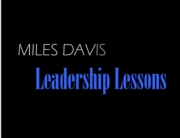I recently had the opportunity to sit down with a co-founder of a small, entrepreneurial company and learn about his experiences. The company was formed in 1998 and saw quick, continued growth that was only slightly curtailed by the downturn in 2008-09. Now, he and his partners are facing challenges as transitions and growth bring in a new, younger group of managers. Hearing this founder’s story, I was struck by how much his company’s path had in common with a family-owned business as well as what was different. Here is a short checklist of those commonalities and differences.
- Built from scratch to success? Similar.
- Agile to changes in the market? Similar.
- Need to imbue entrepreneurial spirit into next generation of management? Similar.
- Relationship started and based on business relationship? Different.
- Understands rules of engagement centered on business? Different.
- Communication almost exclusively based on business issues? Different.
Using this founder’s experiences as a basis, let’s take a deeper look at some of the similarities and differences between family businesses and other closely-held businesses owned by non-related partners.
Similar to Family-Owned Businesses
- Motivation for Starting Business: Put simply, founders see a need in the market and form their business to fill that need. Behind that is a very strong entrepreneurial drive. This drive motivates founders of all types to overcome the obstacles that startup businesses encounter.
- Quick Reaction to Change: Whether family-owned or not, closely-held businesses are quick to recognize and adapt to changes in the marketplace. This is a distinct advantage closely-held businesses have over their corporate, publicly traded counterparts.
- Generational Change: Even non-family businesses face issues of generational change especially as the business matures beyond the start-up phase. For example, the co-founder I talked to wonders how he can imbue his next generation of managers with the same entrepreneurial drive of the start-up team. This sense of entitlement among younger staff and questions about succession are issues that our co-founder shares with family-owned businesses. That said, for him these issues are not intertwined with emotional issues that come with family.
Differences from Family-Owned Businesses
- Choice of Business Partners: The co-founder above made the conscious choice of teaming with his partners to form their business. His alternative would have been to just not associate with these people. The choice for family business is not nearly this simple. The inclusion of the word “family” in the description precludes such an easy disengagement.
- Rules of Governance: Partners begin to develop governance rules for their business from the very moment they begin to discuss the opportunity. They may not be conscious of this but rules of operations are being developed as they agree on their individual roles in their startup. This is much different from family businesses where the addition of a family member usually “just” happens as a result of growth or necessity. (A previous blog offers a primer on creating a Family Constitution.)
- Communication Styles: The process of individuals deciding if they should partner to form a business begins with an exchange of ideas through a series of conversations. These future partners naturally make adjustments in how they communicate to accommodate differences in communication styles. These adjustments are more difficult for family members where it is easy to revert to old parent-child or sibling communication styles. While this can be a great advantage for family businesses, it can also become a drawback when there are differences of opinion or other points of conflict.
Which makes for a better business model?
While it depends on the individuals, there is a natural inclination to assume inherit family bonds provide a distinct advantage for family businesses over other types of companies. However, as any member of a family business will tell you, these bonds require hard work and constant attention. As noted in a Family Business Magazine article: “[A] well-managed family business will outperform its non-family competitors when family members develop strategies and governance processes to manage their interaction with the business.”
Interested in learning how you can set your family business and your family on a collobartive path towards growth and long-term success? Connect with Mark by email (mark@strategicbizgroup.com) or call him at 717-439-6254.











































































[…] can be a blessing and a curse. Engagement works when not accompanied by the emotions often associated with families. And, what happens when the priorities of family members […]